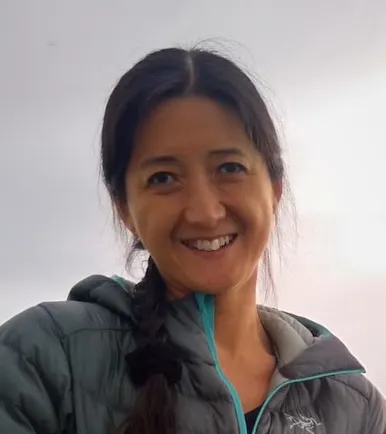About the project
Investigating interactions between the ocean’s biological carbon pump, flux of particles, microplastic contaminants and associated microbial growth – studying the transfer of contaminants to depth. Using ancillary in-situ sensors and samplers, remote sensing, and modelling to resolve spatio-temporal variation in magnitude and composition of particle flux related to different environmental factors.
The downward sinking flux of marine organic particles removes large amounts of carbon dioxide from the atmosphere to the deep ocean, where it is stored for centuries. Interactions between sinking material and small plastic debris (microplastics) may alter the quantity of carbon delivered to the abyss. Additionally microbial growth on microplastics surfaces, entrained into sinking material, facilitates contaminant transfer to depth preventing accumulation in the surface ocean. Interactions between microplastics and marine organic matter have been shown in the laboratory but are yet to be studied in situ. Direct observations will help us understand the nature and impacts on the global carbon cycle and risks of plastic pollution.
The student will gain skills in the quantification and characterization of particulate organic carbon and microplastics; using deep sediment trap material collected year-round at three sites (Porcupine Abyssal Plain (PAP), Northern and Southern Atlantic Oligotrophic gyres) over the past decade. Using ancillary data from in situ and remote sensors they will assess spatio-temporal changes in the magnitude and composition of particle flux related to different environmental factors. They will join the multidisciplinary team on a research expedition to PAP, collecting fresh marine particles for microbial colonization and aggregation studies with microplastics. They will use eddy-resolving 1/12 NEMO model simulations with off-line particle tracking to investigate changes in particle spread, investigating ocean dynamical mechanisms, and identifying regional accumulation hot-spots. The results will establish potential links between advective and downward fluxes of natural particles and microplastics to depth, and their respective impacts.
Supervisory team
The supervisory team includes supervisors from several organisations, including our INSPIRE Partners. Please contact the Lead Supervisor for more information about the team.
Training
The INSPIRE DTP programme provides comprehensive personal and professional development training alongside extensive opportunities for students to expand their multi-disciplinary outlook through interactions with a wide network of academic, research and industrial/policy partners. The student will be registered at the University of Southampton and hosted at OBG (Ocean Biogeosciences) group at the NOC (National Oceanography Centre). The research group is renowned globally as one of the leading centres of excellence in biological carbon research with particle flux biogeochemists, plankton ecologists, marine geochemists, deep-sea biologists, numerical modelers, and remote sensing specialists working together to address the most significant problems in oceanography. Recently, the group expanded its expertise towards anthropogenic impacts on aquatic and marine ecosystems, including microplastic contamination.
The student will learn the skills for field sampling and experimental design, microscopy, elemental analysis (mass- and atomic-emission spectrometry, thermal conductivity detection), molecular-ecological techniques, and spectroscopic imaging analysis and processing for plastic detection and characterization. Other training will include statistical analysis and handing high-resolution modelling output, along with the Lagrangian tracking techniques.
